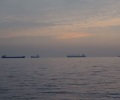India raises export duty on iron ore, Chinese reception mixed

India has raised export duties of iron ore raw materials in an attempt to reduce the cost of domestic steel production, according to a notification released by the country’s Ministry of Finance May 21. The new export duties came in to effect on May 22 and duties for commonly exported iron ore raw materials such as pellets have been raised to 45% from none in a market where weak margins limit the use of high-quality raw material.
Sources told S&P Global Commodity Insights that they are pessimistic on Indian exports and that the market is currently not able to bear the additional financial impact of the duties.
“Exports will stop from India with the high costs,” said an Indian pellet producer. “With the excess capacity in the market, pellet plants may shut down. The domestic Indian market will be unable to take the extra supply originally meant for exports. Iron ore prices in India will drop and pellet plants will shut down to not produce at a loss.”
Another Indian pellet producer said he firmly believes that exports from India will disappear amid the high export duties.
“Meetings have been going on, but it is too soon to say how the producers will respond to this,” said the source. “Plant maintenance or even shutdowns are very possible, given that there is already extra capacity in India.”
The source expects pellet prices in India to fall by at least 30%.
Sources had mixed views on the development having an impact in China.
“Weak steel margins and low iron ore pellet demand is still prevalent,” said a China-based trader source. “There hasn’t been much exports from India to China for a while due to the weak demand. The reduction of imports will have little effect as the usage is low,” the source added.
Chinese steel mills depend mainly on domestic pellets for their supply, with imported material from various origins used to supplement any shortfall. However, the weak steel margins have dissuaded many end-users from using higher quality iron ore such as pellets, keeping demand low.
“The main issue in China is demand, not the supply,” said another China-based trader source.
However, there were other traders who felt that the weak demand now can change rapidly when steel margins improve.
“Pellet demand can change greatly when margins increase, and the increase in export duties will affect the market for at least half a year or longer,” said a Singapore-based trader source.
The source added that portside offers of Indian pellets have risen around Yuan 50-80 from the week before as sellers expect the supply of Indian pellets to dry up.
The offer prices for Rashmi pellets were around Yuan 1,280 as of May 23, compared to around Yuan 1,200 in the week ended May 20, market sources said.
An offer for seaborne Indian pellet in the market during the week ended May 20 on a USD basis was heard to have been withdrawn, with the seller considering a price increase before placing it back on the market.
The 63% Fe blast furnace pellet was assessed at $153.35/dmt CFR North China on May 20, and the premium was assessed at $17.05/dmt CFR North China.
The spot blast furnace pellet premium to the 62% Fe Iron Ore Index assessment was at $39.85/dry mt CFR North China on May 18, after adjusting to a 65% Fe basis.
Source: Platts

 Hellenic Shipping News Worldwide Hellenic Shipping News Worldwide, Online Daily Newspaper on Hellenic and International Shipping
Hellenic Shipping News Worldwide Hellenic Shipping News Worldwide, Online Daily Newspaper on Hellenic and International Shipping





















 PG-Software
PG-Software